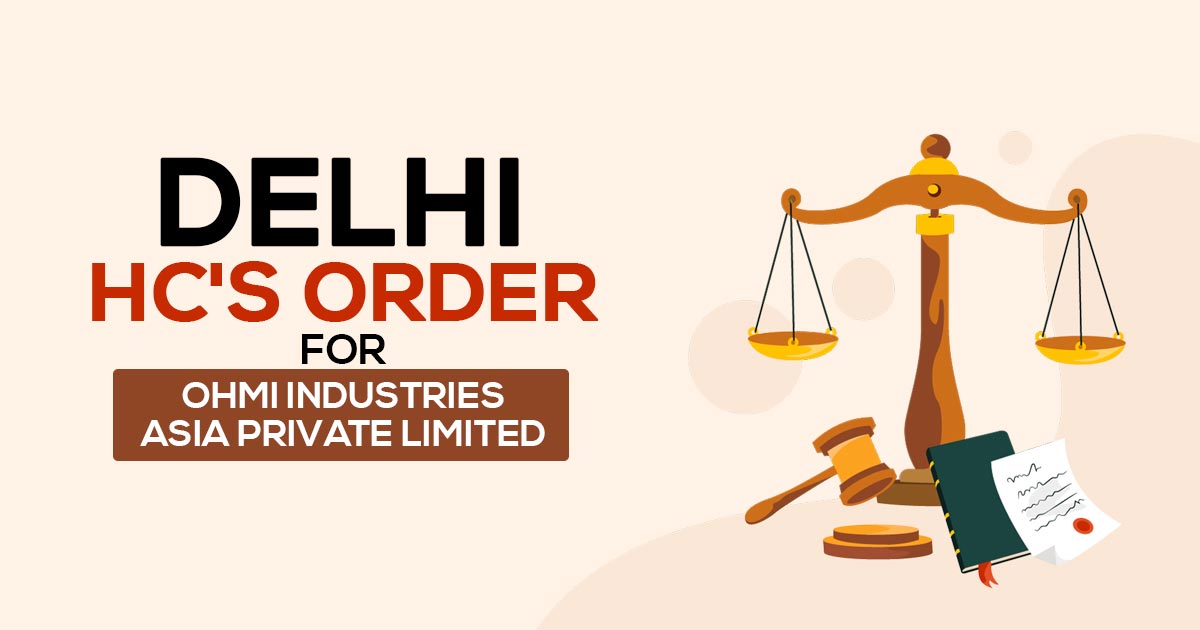
In a recent ruling, the Delhi High Court guided regarding the reimbursement of integrated tax paid on zero-rated supplies in GST, stating that such cases do not fall under the purview of Rule 89(4) of the Central Goods and Services Tax Rules, 2017.
The court, comprising Justice Vibhu Bakhru and Justice Amit Mahajan, emphasised that the language of Rule 89(4) unambiguously indicates its applicability exclusively to zero-rated sales of goods or services, specifically those made without the payment of tax under a bond or letter of undertaking.
The rule, therefore, does not cover reimbursements sought for integrated tax paid on zero-rated supplies. The petitioner emphasised that the refund being sought was not related to the accumulated input tax credit (ITC), but rather pertained to the integrated tax already paid. It was undisputed that the petitioner had fulfilled their obligation to pay integrated tax.
The petitioner, concerning the invoices raised in October 2018, submitted a refund request amounting to Rs. 3,99,187, corresponding to the integrated tax paid on the export of services (zero-rated supply). In November 2018, the petitioner received foreign incoming remittances associated with the invoices.
Subsequently, the adjudicating authority issued a deficiency memo, requesting the petitioner to provide the Foreign Inward Remittance Certificate, which the petitioner duly complied with. Additionally, a show cause notice was issued by the adjudicating authority, highlighting concerns regarding discrepancies in tax payment.
The adjudicating authority raised a query regarding the absence of input tax credit (ITC) shown on four invoices in the petitioner’s matching GSTR 2A.
In response, the petitioner provided clarifications and relevant details in a letter dated July 21, 2020. However, the adjudicating authority denied the petitioner’s request for a refund of integrated tax. Based on the decision of the adjudicating authority, it was determined that the petitioner had paid integrated tax amounting to Rs. 12,02,165 for the invoices issued in October 2018, as reflected in GSTR 3B.
The adjudicating authority justified the denial of the petitioner’s claim by citing Sub-clause (D) of Rule 89(4) of the Rules, which governed the computation of the refund quantity. According to the authority, the turnover shown for the month of November 2018 should consider the remittances received as the turnover for October 2018.
Under the provisions of the Integrated Goods and Services Tax Act of 2017, the petitioner had expected to receive a refund of integrated tax concerning zero-rated supplies made after the payment of integrated tax.
The court observed that the appellate authority had erroneously dismissed the petitioner’s appeal, presuming that the petitioner was seeking a refund of accumulated input tax credit (ITC).
Read Also: Delhi HC: GST Refund Application of Tax Credit Can’t Be Restricted Based on Suspicion
Consequently, the Delhi High Court set aside the decision of the adjudicating authority to reject the assessee’s refund request for zero-rated supplies, providing a clear judgement on the matter. This ruling offers reassurance to businesses engaging in zero-rated supplies, reaffirming their ability to claim reimbursement for integrated tax paid and fostering confidence in the tax system.
| Case Title | Ohmi Industries Asia Private Limited Versus Assistant Commissioner |
| Citation | W.P.(C) 6856/2022 |
| Date | 29.03.2023 |
| Counsel For Petitioner | Mr Anish Roy, Senior Standing Counsel |
| Counsel For Respondent | Mr. Anish Roy, Senior Standing Counsel |
| Delhi High Court | Read Order |









